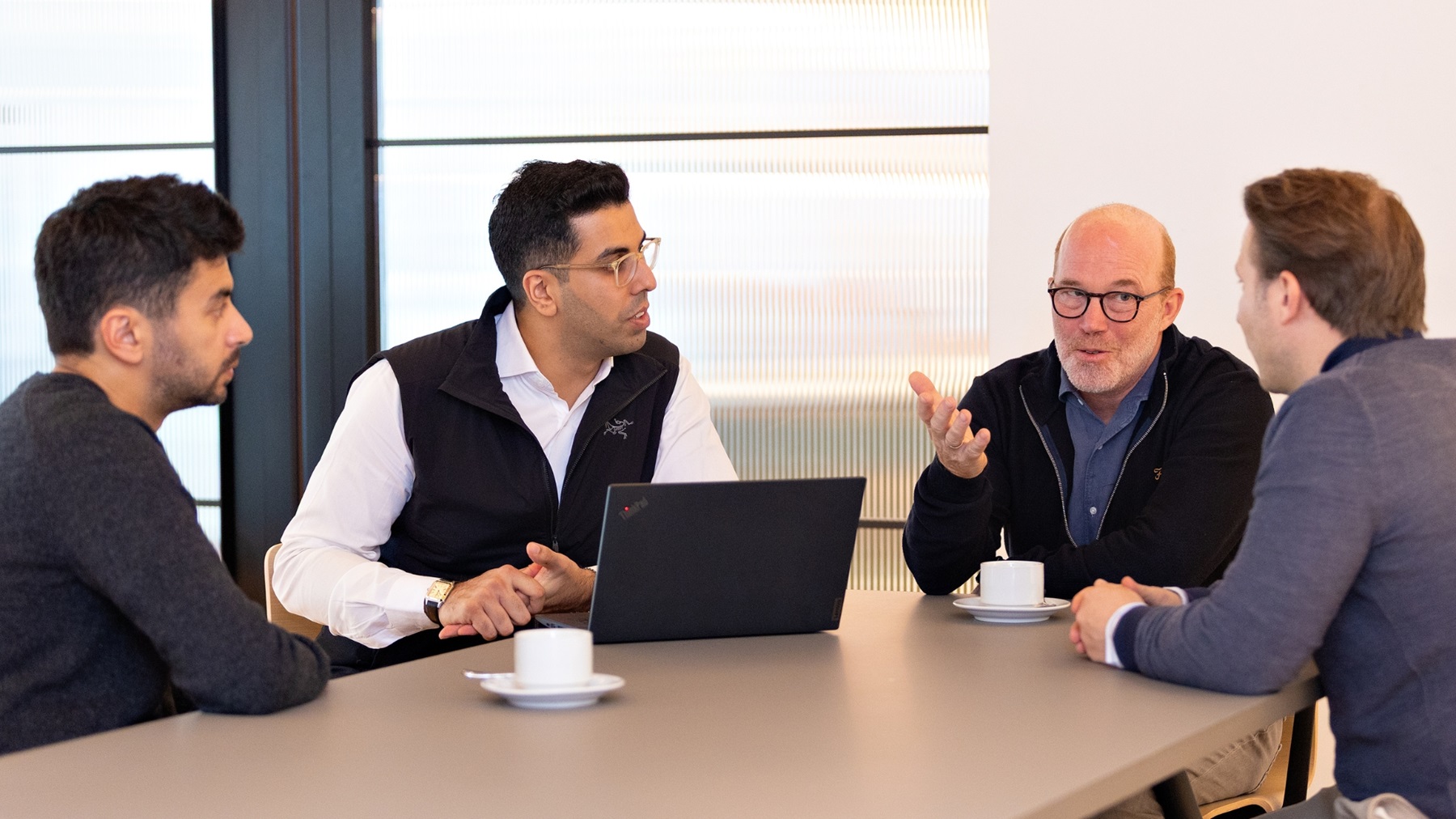Strengths and Challenges for the European Startup Ecosystem: An Interview with NEA
As we saw in our exclusive Inside The Minds of European VCs report, while the startup and VC ecosystems in the United States are much more mature (with enough business to stay 100% focused on that side of the Atlantic), more and more US venture capital funds are now venturing into Europe.
What makes Europe so appealing and what challenges are our US colleagues facing?
To better understand the strengths and challenges of Europe in the eyes of US investors, we turned to our longtime partners at New Enterprise Associates (NEA) for their assessment. With over $25 billion in assets under management, NEA is one of the world’s largest venture capital firms focused on helping entrepreneurs build transformational businesses across multiple stages, sectors, and geographies. So who better to ask?
Philip Chopin Partner and Managing Director of NEA Europe. He agreed to share his thoughts on the strengths and challenges of the European startup ecosystem. In our conversation below, we discuss everything from role models and access to local talent to funding gaps and the fragmentation of the European market.
What are the strengths of the European ecosystem?
Fresh Opportunity & Role Models
We have seen a refreshing level of enthusiasm within Europe’s startup culture. Since Europe does not have the history of large exits that are a hallmark of the U.S. ecosystem, there is capacity for European founders to possess tremendous motivation and excitement around building companies that could become the region’s foundational examples of big tech success. There are some early role models from the last decade that serve as relevant inspiration for the new generation of founders.
Access to Top Local Talent
We believe the European startup and venture ecosystem is fueled by strong technical universities based in each of the top startup markets—for instance, TUM in Munich or Polytechnique in Paris. Many European founders have also operated for years in the U.S. at top tech companies and have decided to return to Europe to build their own business. Furthermore, Europe’s proximity to some of the top engineering talent in lower-cost locations (e.g., Eastern or Southern Europe) can be a real competitive advantage in terms of capital efficiency.
Employee Stock Ownership Plans
ESOPs are now the norm amongst tech companies in Europe. There is also a better understanding from employees of the value of stock options. This results in increased financial independence once an exit happens, and we have seen an increased percentage of repeat founders.
Legacy Industries
Many markets in Europe are primed for disruption, which can create huge opportunities for founders to offer innovative solutions. For instance, we have seen a lot of software or fintech companies going after sectors such as the manufacturing or banking industries.
Operational Focus
When pitching their opportunity, European founders tend to have a stronger focus on the upcoming 12-24 months, which contrasts with many U.S. founders who tend to focus on the big, long-term vision. This operational focus often allows for effective execution from an early stage.
What are the challenges of the European ecosystem?
Fragmentation
In Europe, pockets of entrepreneurship have developed in many cities, with more sophisticated hubs forming around major cities. This dispersion differs from the U.S. where startup hubs are concentrated on the coasts and in a handful of regions. Obstacles such as language barriers, cultural differences, and varying legal systems and regulations can make it difficult for entrepreneurs in different parts of Europe to recruit international talent and raise capital from international funds.
Lack of Funding & Liquidity
The nascency of the European ecosystem limits the working capital available. Much of the growth-stage capital that is deployed in Europe still comes from U.S. funds, as does most of the liquidity—in the form of acquisitions by large U.S.-based tech companies or IPOs on U.S. exchanges.
Operator Talent
Although there is a strong operational focus among founding teams in Europe, some functions in the U.S. have a deeper talent pool, such as product management or product marketing, primarily due to the country’s longer history of startup and tech innovation.
Market Size
The U.S. remains a much larger enterprise software market than Europe. Often U.S. startups maintain a domestic focus until IPO and then expand into Europe, while European enterprise software companies often need to enter the U.S. market at Series A or B to become global category leaders.
Why are US investors interested in Europe?
Investors are paying more attention to the burgeoning investment opportunities in Europe, as well as the significant scale some businesses are achieving—the presence of more $10 billion companies has not gone unnoticed. These factors lend to the growing appeal of the European market as a new investment territory where U.S. funds can enter, build a strong portfolio and brand, and be considered a market leader. The success of some U.S. funds in Europe has helped pique the interest of family offices and other wealth funds that have historically not invested in VC but are now increasing their exposure to the asset class, leading to a growing number of new prospective LPs in Europe.
Europe also offers an appealing quality of life based on factors like access to healthcare, low unemployment, ease of travel/transportation, etc.—this is a draw for successful European operators in the U.S. to return to Europe to build businesses.
European investors believe that the continent is a fragmented market with many regional ecosystems, primarily the UK, France, Germany, Netherlands and Nordics. What regions are the most interesting ones for NEA and why? Why did you decide to open an office in London rather than another European city?
NEA is excited about each of these regional ecosystems and aims to spend dedicated time in each one every quarter. Our decision to establish a European base and open an office in London stems from a multitude of factors: it is an English-speaking region; it has a high concentration of talent and companies; travel infrastructure is conducive to business (e.g., high density of flights between London and the U.S. as well as many European countries); and it offers close proximity to many other investment funds and Limited Partners.
What do you see as the biggest challenges and differences when making deals in Europe?
There is an added layer of complexity in successfully navigating the span of cultures and business styles across Europe. It is important to consider and adapt to these differences to avoid any offensive practices and accurately assess markets and opportunities.
Additionally, the fragmented geography increases frequency of travel, as well as the time, energy, and expense that go with it. Despite this being more difficult than navigating around the 50-square mile radius of Silicon Valley, we recognize that it is effort well spent to be in-person to see and win the best deals.
Finally, digesting European pitch decks requires a bit of reorienting. US investors are accustomed to pitches that focus on the 10-year opportunity and grand vision, while European decks tend to be more operationally focused including 18-month milestones, etc.
What do you think are the most exciting investment areas in Europe?
Software and fintech are at the forefront of European innovation. There are also exciting companies in robotics and other deep tech areas, as well as in healthcare. Europe’s emphasis on design aesthetics—even within enterprise-focused companies—is indicative of future potential for more consumer companies to follow the lead of strong models, such as Wolt and Deliveroo.
Want more updates on our portfolio? Sign up for our monthly newsletter and follow us on LinkedIn.













.svg)
